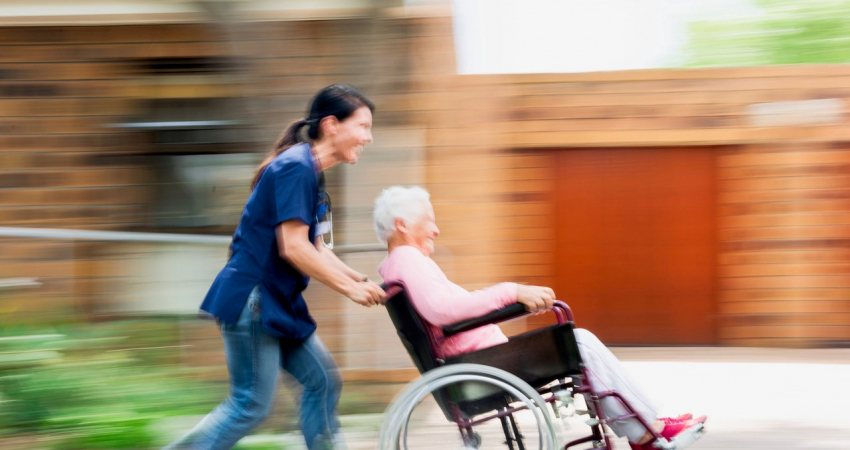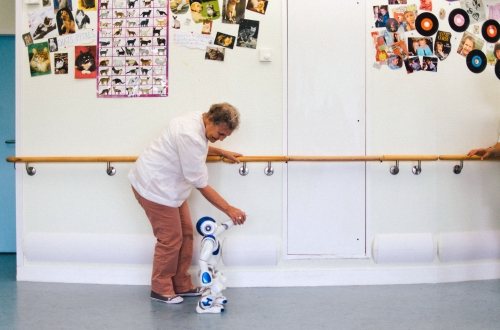Technologies in care for older people: international report
Photo: iStock

Organizations from seventeen countries, including the Rathenau Instituut, did a technology assessment to inform the debate on what is good social care and health care in an aging digital society. They published their findings in the EPTA report ‘Technologies in care for older people’. Read the summary below and follow the link to the full report.
In short:
- 17 countries wrote a report to inform the debate on what is good social care and health care in an aging society.
- It seems a good idea to use new, digital technologies. But human interaction and acceptance are needed.
- Challenges are access to the internet, digital alienation and loneliness. Risks are deception, infantilisation and loss of autonomy.
Trilogy – Careful use of technology for ageing societies around the world
Worldwide populations are ageing, albeit at a different pace. Important factors that determine successful ageing of people are proper lifestyle, housing that fits people’s needs, a decent income, firm social structures, and access to good health care. However, the costs of health care are rising, the health care workforce is declining and informal caretakers are growing old themselves.
Our digitized society is becoming less inclusive for older people. At the same time, digital technologies such as telecare, robots, smart houses and smart cities hold a promise for solutions. The Covid-19 pandemic, requiring social and physical distancing, has put pressure on the application of these technologies, revealing their opportunities and downsides.
In this trilogy of articles we reflect on the role of technology in providing solutions to the challenges that ageing societies face. We use insights from our own research and research done with colleagues around the world. We also learn from Japan, a super-aged society that is at the forefront of investigating the potential of technology that promotes health, wellbeing ánd inclusion of the elderly.
The number of older people requiring extended care due to disability or functional limitation will increase in all countries. This has important implications for sustainable development. New technologies and socio-technological innovations in elderly care are being developed and considered as a solution. Examples of these technologies are eHealth platforms, active and assisted living, and socially assistive robots.
These innovations need to be socially implemented, taking into account wishes and concerns of a heterogeneous group of older users, family caregivers and professionals. In addition, these innovations need to be fitted into broader policies that are developed to meet the challenges of ageing societies. At the same time, we need to focus on minimizing potential adverse effects on the rights, capabilities, and resilience of older persons.
Technology assessments play a crucial role in both understanding and tackling these issues. It informs decision-makers in parliaments and policymakers. Therefore, in a joint effort, 17 members of the European Parliamentary Technology Assessment (EPTA) network in Europe, Japan, United States, and Mexico have presented the current use of technologies in elderly care in each of their countries.
The country representatives present in the EPTA report 2019: Technologies in care for older people key demographic facts and different policy initiatives, for example to improve digital skills of elderly and of health and social care professionals to avoid digital alienation and to reduce health differences. Furthermore, societal implications of the various technologies and innovations in elderly care are discussed.
The report concludes with future perspectives. Obviously, the care of elderly people and their participation in society requires far more than a simple technological fix.
This is part 3 in the trilogy Careful use of technology for ageing societies around the world. Part 1 Growing old with dignity: which role for eHealth? was published at 20 November. Part 2 It’s not a crime to be old came online at 1 December.


